Today I’m going to talk to you about a form of African travel which is very popular – overlanding. I have been on African overland tours and safaris myself, and I can tell you: it was an amazing experience!
When I first set foot on African territory, quite some time ago lol, I chose overlanding, because it was the most affordable and adventurous way, back in my younger days 🙂
It’s the unparalleled freedom, the closeness to nature, and the authenticity of engaging with local cultures that make this form of travel so enticing.
You might be wondering, why forgo the usual tourist trails for this rugged form of travel? I’ll tell you this – overlanding for me is thé most exciting way to travel around Africa, and I will tell you why and at the same time provide you with the best tips and tricks because you will probably need them!
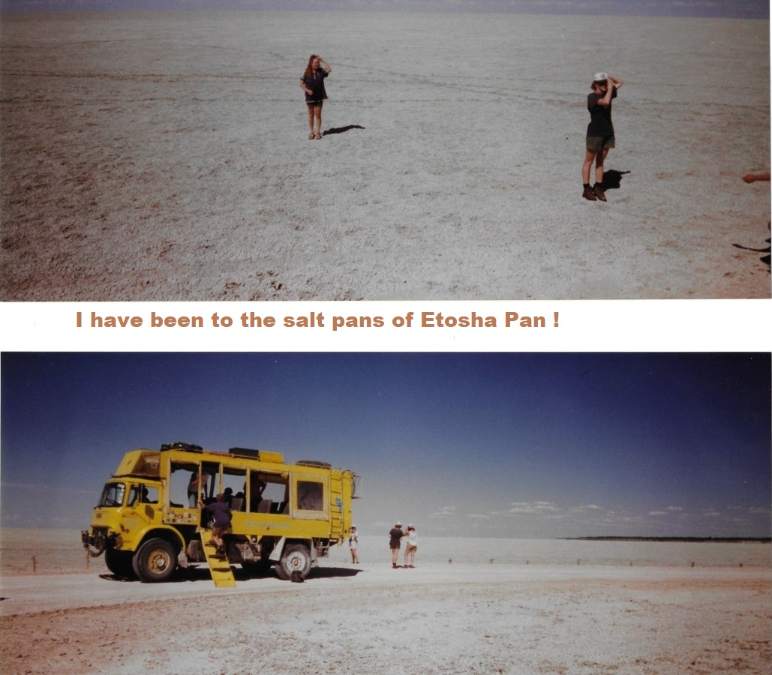
Chronicles of My Overland Journeys – A Throwback In Time
I’m going to take you through some incredible journeys that literally changed the way I see the world, specifically Africa.
1. Overlanding through Southern and Eastern Africa
On my first trip, I traveled with an overlander from Johannesburg, South Africa to Kenya. Which took about a month’s travel.
On that overland tour, we crossed Zimbabwe (those Victorian Waterfalls, wow!), Zambia, Malawi, Tanzania, and the enchanting island of Zanzibar.
Was it quite quick to do this in a months time, and would I travel with an overlander slower this time? Surely would, but at the time I joined a travel agency that provided overland travel in groups, so yeah, the choice was restricted 😉
I crossed paths with elephants in Hwange, rafted below the great Victoria Falls, and flew in a ULM, and navigated the bustling markets of Lusaka. Every campsite and every new encounter with the local culture taught me something valuable.
Zanzibar’s spice plantations and white sandy beaches offered a different taste of Africa, one steeped in history and scented with cloves and cinnamon.
And then, Kenya introduced me to the Maasai Mara, where the rawness of the savannah was as breathtaking as you’d imagine.
2. Overlanding from Capetown, Ending at the Victoria Falls again
Now, let me talk about my second trip: I left from the cosmopolitan vibe of Cape Town (where I landed with an internal flight coming from Johannesburg), journeyed across the vast deserts of Namibia and the floodplains of Botswana, and ended yet again at the thundering Victoria Falls. ( it sure wasn’t a problem at all to see the falls again!)
Each landscape and country had its own tale, from the eerie quiet of the Fish River Canyon to the star-studded skies over the Okavango Delta. ( I will write so much more about my adventures on my blog over time, keep posted!)
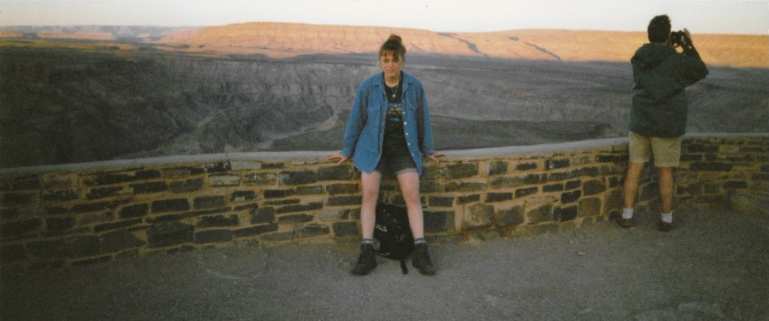
Throughout these travels, I realized that overlanding is as much about introspection and personal growth as it is about exploration. Connecting with nature, with fellow travelers, and with oneself ( I traveled alone back then, although joining with the group later), is the true reward of this kind of journey.
So hang on for more details of each place I have visited in the past, but for today, I will try to give you my personal experiences on what you definitely need when you go overlanding!
Insider Tips for Your African Overland Safari
Next, we will go over my thoughts on everything you need to consider for an African overlanding tour, from weather circumstances to what to pack and more, let’s go!
Choosing the right time of the year for your trip is crucial.
In my experience, and for both tours above, September to October are the best months and offer a sweet spot with fewer tourists and better weather. (not too cold, not too hot) But remember, this can vary depending on the region you’re visiting.
Remember also, that even though you are in Africa, nights can still get freezing cold in some countries and that you are staying in a tent while overlanding 😉
But if you want to be sure to see wildlife migration, which is in Tanzania and Kenya, this is the most visible from July to October!
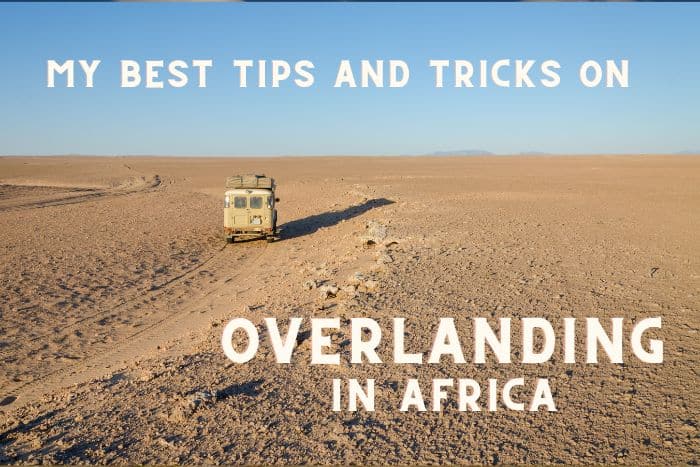
What to pack on an African overland tour?
Your packing list should strike a balance between being prepared and staying mobile.
I remember that I brought quite a few gadgets with me the first time I went on a safari, some of them I used a lot, others less. And another member of the group I was with, also packed a few handy things and we were jokingly competing about it 🙂
There was this one time in Namibia when it was very hot, when this same person suddenly unpacked a bottle with a minty smell of liquid. I thought it was alcohol, but turned out that it cools you down haha, very handy in the dessert!
But most personal essentials include: (if you go with a touring guide and a group of people)
- a quality waterproof backpack,
- a good sleeping bag
- a light (inflatable) mattress for sleeping in a tent
- multi-purpose clothing. Long trousers at night and don’t forget a sweater (yes!)
- an aluminum water bottle
- wet wipes are a lifesaver when you need to be sparingly with water!
- your personal papers, including passports, visas, driver’s licenses, vehicle registration, and insurance papers.
- Cash and Credit Cards. Cash is something very useful in lots of countries regarding giving tips, like the Rand in South Africa.
- sunglasses and sunscreen
- a hat!
- high hiking boots (best protection against snake bites and scorpions!)
- Insect repellant, the most used product is DEET, but be careful to stick to the dosis!
- a clothesline and eco-friendly laundry soap (don’t bring chemicals to the African Savannah please!)
- and perhaps the most important, a reputable guidebook or GPS system (if you are going without a guide, but even then)
- personal medication and personal hygiene
- a charger for your cellphone and an extra battery charger. Simply because: yeah, you won’t have many occasions to charge your phone!
- binoculars and a good camera (personal choice)
- US Dollars are widely accepted in Africa, take care to not get scammed if you are exchanging money for local currencies
- don’t forget your swimsuit!
- a flashlight or headlamp with plenty enough batteries
- a mosquito net. Now, usually, you will sleep in canvas tents where mosquitos won’t be able to enter, but for those times you want to sleep under the stars, a mosquito net is absolutely necessary!
The travelclothesline for example that I loved to use, is this solid cord, where you don’t need clothespins, but you can just squeeze your clothes between! (showed the travel partner that I told you about back then, and we had a laugh!)

Tri-Braided Cord Clothes Line, Portable Travel Clothesline
Buy Now →The items below are mostly included if you join an organized safari tour, but if you head out by yourself or with family or friends, then, of course, you need to include:
- A Vehicle (duh): Choose a reliable 4×4 vehicle suitable for off-road conditions. Ensure it’s properly serviced and equipped for long journeys.
- Navigation: GPS device or navigation app, detailed maps, and a compass. Cellular service may be limited in remote areas, so offline maps are essential! And this will probably best include:
- A satellite phone or radio for emergencies.
- First Aid Kit: Stock a comprehensive first aid kit including medications, bandages, antiseptics, insect repellent, and basic medical supplies.
- Water and Water Purification: Carry sufficient water for drinking, cooking, and cleaning. Also, bring water purification tablets or a filtration system for refilling from natural sources.
- Food and Cooking Equipment: Pack non-perishable food items, cooking utensils, a portable stove, and fuel for preparing meals during the journey.
- Camping Gear: A waterproof and bugproof tent (preferably canvas), sleeping pads, and camping chairs for overnight stays in remote areas.
- Tools and Spare Parts: Basic toolkit, spare tires, tire repair kit, air compressor, jumper cables, and spare parts for the vehicle.
- Vehicle Recovery Gear: Recovery straps, shackles, shovel, and traction aids such as sand tracks or traction mats for getting unstuck from difficult terrain.
- Safety Equipment: Fire extinguisher, reflective triangles..
- Matches
That’s about all I can think of at the moment, I will expand when I remember something extra!
If I missed something, here’s a video I would recommend that you watch from AfricaFreak 😉
Take care of your health!
Don’t overlook your health. Malaria prophylactics, vaccinations, and a solid first-aid kit are non-negotiable. Also, always have a plan for clean drinking water.
Besides diseases from mosquitos or certain flies, they can be just very annoying and.. itchy! Aaarggh..
Do NOT ever drink from non-tapwater and (sweet) water sources or even bathe in it, if you can avoid it! ( I was once sick from an Schizosoma Mansoni infection, not to be tested out on yourself, folks! )
Respect cultures, and the environment, and be safe!
Research and Planning: Familiarize yourself with the route, local customs, regulations, and potential risks. Plan alternative routes and accommodations in case of unexpected events.
Respect for Wildlife and Environment: Follow Leave No Trace principles, respect wildlife, and minimize your impact on the environment.
Emergency Plan: Share your itinerary with someone reliable and establish a check-in system. Know emergency contact numbers and procedures in each area you’ll be traveling through.
Border crossings in Africa can be time-consuming. Be patient, have all your documents ready, and keep small denominations of US dollars handy for visa fees.
Cultural sensitivity is vital. Learn a few phrases in the local languages, always ask before taking photographs, and respect the customs you encounter.
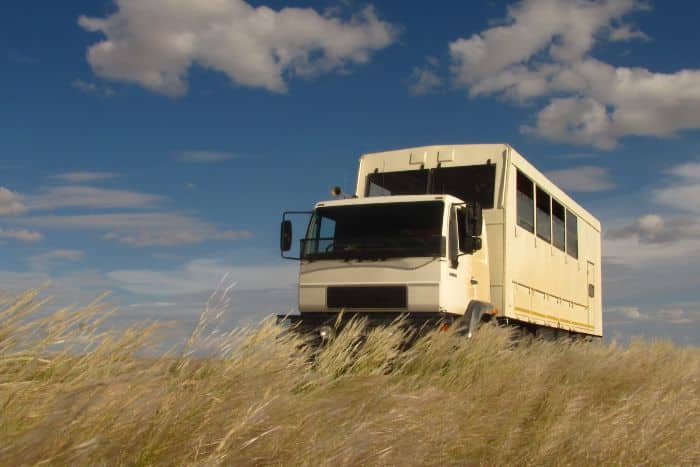
Choosing Your Overland Experience: Solo vs. Group Tour
Deciding between a solo trip with your own overland vehicle or joining a group tour can be tough, but it’s crucial to find what’s best for you.
In the table below, you can see what my pros and cons are of both ways, it depends a bit on your character I think:
| Aspect | Solo Trip | Group Tour |
|---|---|---|
| Independence | Exhilarating; You make the rules and schedule | Less; Follows a set itinerary |
| Responsibility | High; Vehicle maintenance, route planning, problem-solving challenges | Low; Guides handle logistics, less individual responsibility |
| Flexibility | High; Freedom to change course as desired | Low; Sticking to set itinerary |
| Stress Level | Moderate to High; Depending on individual’s comfort with responsibility | Low; Guides handle logistics, less planning required |
| Social Interaction | Lower; Relies on meeting people along the way | Higher; Ready-made group of fellow travelers, but not made for introverts though 😉 |
| Privacy | Higher; More control over personal space | Lower; Shared accommodations may limit privacy |
| Price | More expensive, as you need to get the vehicle yourself (or rent it) and all the equipment that comes with it. | More affordable, you just need to provide your personal items. And most of the time the tent is included. |
If you choose to go solo, the independence is exhilarating. You make the rules, set your schedule, and have the freedom to change course whenever you like. But with this freedom comes responsibility. You’ll need to be prepared for vehicle maintenance, route planning, and problem-solving challenges that might arise when you’re in the middle of nowhere.
On the other hand, group tours offer a more structured and stress-free experience. You’ll have expert guides who know the terrain, a ready-made group of fellow travelers, and there’s less to worry about in terms of planning. However, this means you have to be okay with sticking to a set itinerary and possibly less privacy.
Summarized: you choose!
Related article: The 8 best safety tips for overlanding in Africa: how to protect yourself from theft and more!
My Final Conclusion.
I hope that you take these tips and tricks for an African overland tour or safari seriously, then you can thank me later hahaha!
If you think I need to add something to these tips or want to ask a question, please leave a comment down below in the comment section and I will get back to you as soon as possible!
I wish you happy travels!
Kind regards,
Lizzy
I now have a YouTube channel as well!
YouTube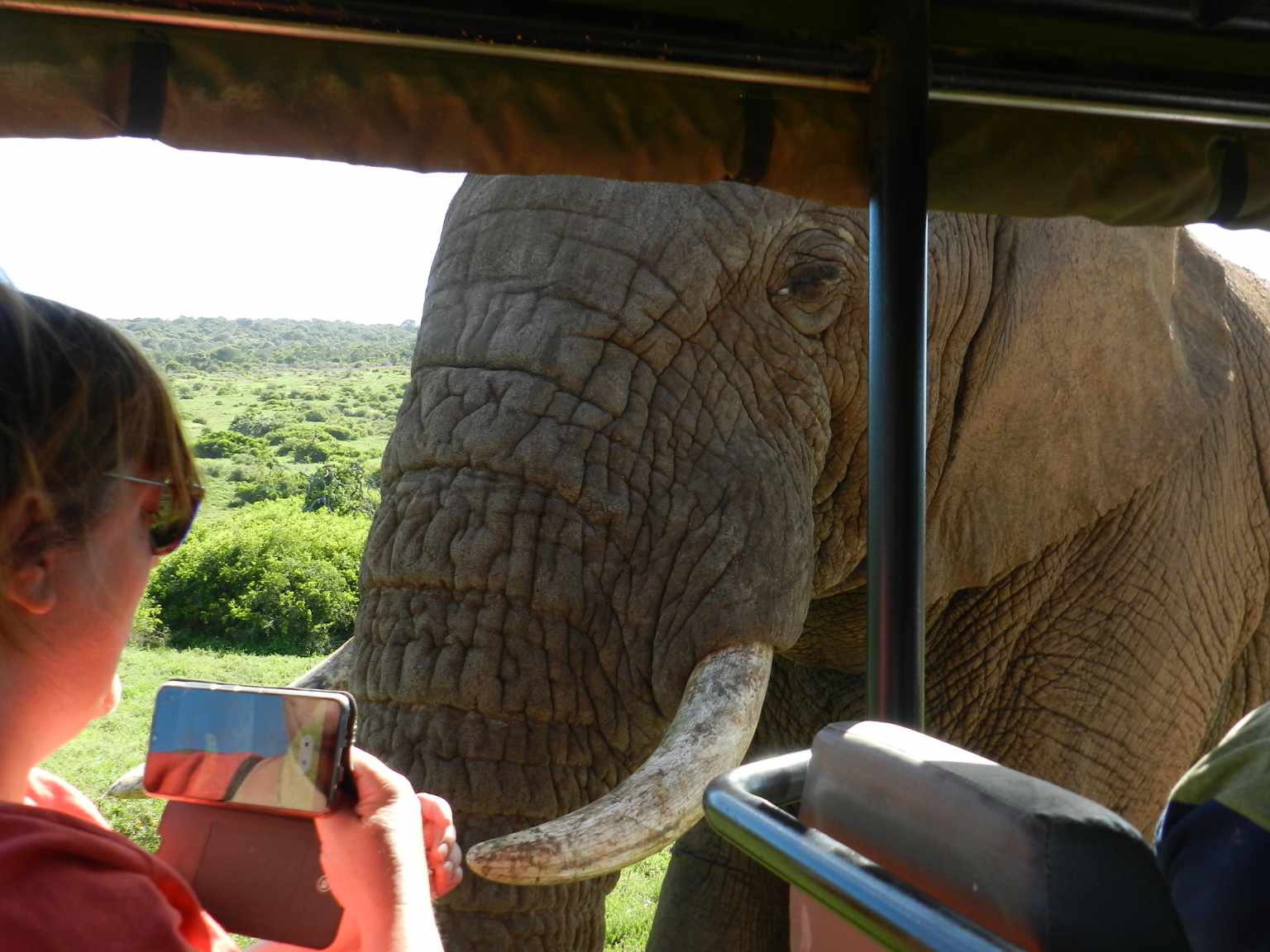
Hello Africa travellers!
Who am I? Well, the least you can say is that I am quite crazy about Africa, its nature, its climate, its culture, and more.
As a young woman in my twenties, I had already traveled to several African countries by traveling along in an overlander on my own and mostly camping ( or glamping ) and just fell in love with the diversity of it all.
So much, so that at the age of 26, I went back to university to study biology, which, unfortunately, I couldn’t finish because of health reasons (yes, I got sick from a tropical disease, oh cynicism). But this did not stop my dream of traveling back to Africa several times, and I still do.
My dream was back then to leave Europe and go study animal behavior, especially the elephants (sure, that’s every girl’s dream haha), but I am also very much intrigued by hyenas and other “ugly African animals“.
So, I “kind of” have a little bit of a scientific approach to my articles, when I write about African birds, for example. And most of all: the passion.
But life goes on, you move from one side of the country to the other, you get sick again and top it off with lower back problems, and before you know it, you are over 50 hahaha!
Now, I still travel to Africa, but take it a bit “easier” than the good old camping days, and stay in comfortable, yet affordable accommodations, together with my husband Wouter.
These are some of the countries I have traveled to: Kenya, Tanzania, Zanzibar, Malawi, Zambia, Zimbabwe, South Africa, Namibia, Botswana, Tunisia, and a little bit of Lesotho LOL .
While clearly not being African territory, but Spanish, I also visited Gran Canaria and Tenerife, and location-wise, I consider them “African”, because of their climate and nature, sue me :-p
The last trip I took was to South Africa in the year 2023, and it sure got the fevers for Africa back! From the Barberton mountains to the Drakensberg and the Southcoast, one month wasn’t enough at all to see the whole country, so we’ll be back! At ease and with a little bit more luxury than in my younger days haha!
I wish you happy travels!
Kind regards
Lizzy

Hey I really appreciate your tips here that are obviously very much coming from a place of expertise. If you forget even one thing it can really be a bummer and have a negative effect on your vacation so it’s best to be very diligent and thorough and spend the money when needed.
Hi Jake!
yes, spending some money on the necessities is always a good thing while travelling in Africa, but mostly, enjoy the ride! 🙂
Lizzy
Your detailed account of your African overland tours and safaris is both captivating and insightful. Your firsthand experiences offer a genuine perspective on the wonders and challenges of exploring Africa in such a raw and adventurous manner. From traversing the diverse landscapes of Southern and Eastern Africa to sharing invaluable tips on packing essentials and health precautions, your article is a treasure trove of practical advice for aspiring overlanders. Your passion for this form of travel shines through, and your enthusiasm is contagious. Thank you for sharing your adventures and empowering others to embark on their own African safari journeys with confidence and excitement!
Hello dreamgirl!
Thanks very much for your compliments and I hope you’ll have fun overlanding!
Lizzy